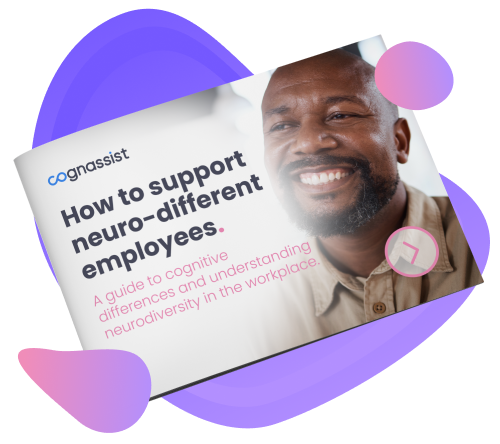Build a workplace that supports and empowers neurodiverse talent
In today’s evolving workplaces, understanding and supporting neuro-different employees is more critical than ever. Our comprehensive guide, How to Support Neuro-Different Employees, provides employers, HR leaders, and managers with actionable strategies to embrace neurodiversity, enhance inclusion, and unlock the full potential of their workforce.
This resource offers insights into the unique cognitive differences that neurodiverse individuals experience, from verbal reasoning and memory to executive functioning. By understanding these strengths and challenges, organisations can remove barriers, foster a culture of belonging, and enable employees to thrive.
Packed with practical advice, real-world examples, and workplace adjustments, this guide helps businesses navigate neurodiversity with confidence. Supporting neuro-different employees not only enhances well-being but also drives innovation, retention, and collaboration within teams.
Whether you’re just starting your neuro-inclusion journey or refining existing practices, this guide provides the tools and knowledge you need to build a truly inclusive workplace.
- Understand the importance of cognitive differences in the workplace.
- Discover simple adjustments to support neuro-different employees.
- Foster an environment where every individual can thrive and succeed.







